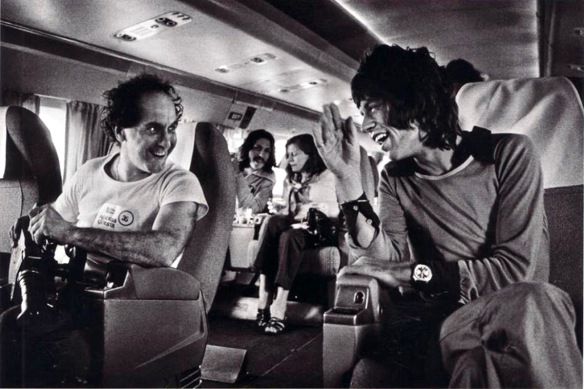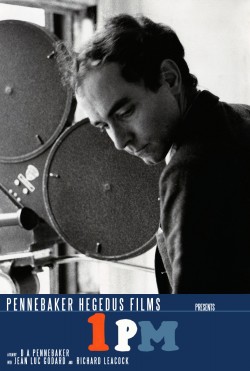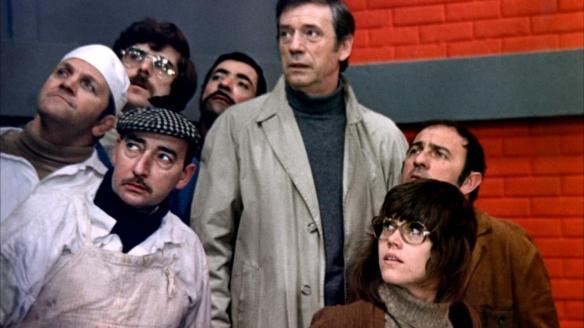 Route One is a historic American highway with a rich history spanning three centuries. It starts in Key West, Florida and ends in Fort Kent, Maine and some of the cities along the way include Miami, Washington, New York City and Boston. Filmmaker Robert Kramer decided to travel the entire route in 1988 with his friend Paul McIsaac and make a film about the journey. Part of his intent was to explore and document the lives and mind set of the people he met along the way but also to come to terms with his own feelings about America after living abroad for almost a decade. The completed film, Route One USA (1989), is a fascinating mosaic of American culture and much more than just a time capsule since it reveals the roots of the polarization and fragmentation that is affecting our country today. Continue reading
Route One is a historic American highway with a rich history spanning three centuries. It starts in Key West, Florida and ends in Fort Kent, Maine and some of the cities along the way include Miami, Washington, New York City and Boston. Filmmaker Robert Kramer decided to travel the entire route in 1988 with his friend Paul McIsaac and make a film about the journey. Part of his intent was to explore and document the lives and mind set of the people he met along the way but also to come to terms with his own feelings about America after living abroad for almost a decade. The completed film, Route One USA (1989), is a fascinating mosaic of American culture and much more than just a time capsule since it reveals the roots of the polarization and fragmentation that is affecting our country today. Continue reading
Tag Archives: cinema verite
Robert Frank and The Rolling Stones

Photographer/filmmaker Robert Frank (left) and Mick Jagger (right) on The Rolling Stones’ private jet during their 1972 tour of the U.S. to promote the album “Exile on Main Street” as depicted in the rock documentary Cocksucker Blues (1972).
After being withheld from release for 15 years, Gerald Fox’s Leaving Home, Come Home: A Portrait of Robert Frank, is finally receiving a U.S. theatrical release. Famous for his seminal 1958 collection “The Americans,” Swiss-born photographer Frank is no stranger to films being withheld from public viewing and one of his most infamous projects C*cksucker Blues, a behind-the-scenes account of The Rolling Stones’ 1972 tour of America, remains unreleased to this day. Continue reading
The Unforeseen Journey from Jean-Luc Godard’s 1 AM to D.A. Pennebaker’s 1 PM
 With more than 100 feature films, shorts, video and TV work to his credit, Jean-Luc Godard is surely the most audacious, groundbreaking and prolific filmmaker from his generation. Even longtime admirers and film historians have probably not seen all of his work and some of it like the political cinema he made with Jean-Pierre Gorin under the collaborative name Groupe Dziga Vertov is tough going for even the most ardent Godard completist. Weekend (1967) is generally acknowledged as the last film Godard made before heading in a more experimental, decidedly non-commercial direction which roughly stretched from 1969 until 1980 when he reemerged from the wilderness with the unexpected art house success, Sauve qui peut (Every Man for Himself). But most of the work he made during that eleven year period prior to 1980 championed social and political change through ideological scenarios and leftist diatribes that were overly cerebral and static compared to earlier career milestones like Breathless (1960), Contempt (1963) and Pierrot le Fou (1965).
With more than 100 feature films, shorts, video and TV work to his credit, Jean-Luc Godard is surely the most audacious, groundbreaking and prolific filmmaker from his generation. Even longtime admirers and film historians have probably not seen all of his work and some of it like the political cinema he made with Jean-Pierre Gorin under the collaborative name Groupe Dziga Vertov is tough going for even the most ardent Godard completist. Weekend (1967) is generally acknowledged as the last film Godard made before heading in a more experimental, decidedly non-commercial direction which roughly stretched from 1969 until 1980 when he reemerged from the wilderness with the unexpected art house success, Sauve qui peut (Every Man for Himself). But most of the work he made during that eleven year period prior to 1980 championed social and political change through ideological scenarios and leftist diatribes that were overly cerebral and static compared to earlier career milestones like Breathless (1960), Contempt (1963) and Pierrot le Fou (1965).

Yves Montand (center in raincoat) and Jane Fonda (lower right) star in Jean-Luc Godard’s Tout Va Bien (1972).
Of the films he made during the Groupe Dziga Vertov period, only Tout Va Bien (1972), which starred Jane Fonda and Yves Montand, attracted mainstream critical attention but most of the reviews at the time were indifferent or hostile to this Marxist, Bertolt Brecht-inflluenced polemic about a workers’ strike at a sausage factory. Much more interesting to me was the film he attempted to make in 1969, tentatively titled 1 AM (or One American Movie). A collaboration with cinema-verite pioneers D. A. Pennabaker and Richard Leacock, the project was abandoned after Godard lost interest during the editing phase but Pennebaker ended up completing his own version of the existing footage which he titled 1 PM (or One Parallel Movie). This is a brief history of the film’s journey from concept to screen. Continue reading
